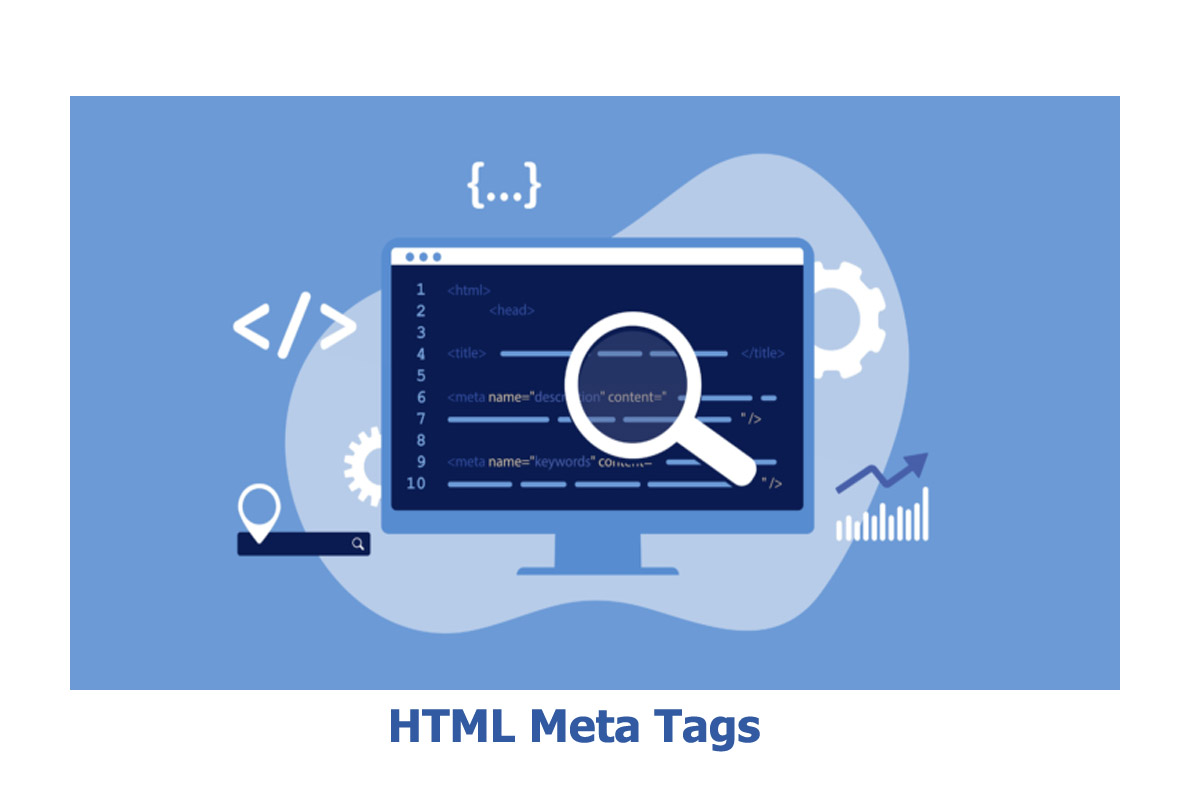HTML Meta Tags
Introduction
HTML Meta Tags document and provide encrypted information to browsers and search engines about a web page. The metadata is invisible to the user and is responsible for adding data to facilitate the analysis of HTML files and the management of the content of a web page.
HTML meta tags often follow the same construction: first, an element is defined and second, content is assigned.
Some time ago, metadata was of great importance for SEO. Now, its influence on positioning in the most popular search engines has diminished.
However, HTML meta tags are still relevant to metasearch engines and local search archives. So it doesn’t hurt to have a detailed list of them. In addition, they allow defining indications to guide the bots (crawlers) of the search engines.
The Meta Tags You Should Know
The list of all the elements that can be included in the header of an HTML file is extended. Along with essential data such as the title and description of the page or the definition of the font used for the text. The header of HTML files can contain helpful information for user agents.
Thus, it is possible to delimit relevant keywords or define a theme for the page. You can even refer to the author or publisher of the content and indicate the copyright.
Although this data is not always relevant for interaction with browsers and search engines. HTML Meta tags direct their Behaviour by preventing. For example, the indexing of an HTML file or the crawling of links on a page. In the following selection, we clarify the most important meta tags and their usefulness for the administration of web pages.
Title
Strictly speaking, this is not a meta-tag, but an autonomous HTML meta tag (HTML Tag). Although, due to its meaning when interacting with user agents. It is standard for it to be mentioned as part of the metadata.
The title is usually placed above all other tags as a mandatory element in the HTML header. It is read by browsers and appears in the title bar of a tab or window as the common name of the page in the bookmarks list and the browser history.
Furthermore, the most important search engines use this label to title the entries in the list of results or SERPs so that it has a decisive influence on the choice of the Internet user.
According to Google, the title is included among the nearly 200 factors considered in calculating the ranking in organic search. This is why, within the framework of On Page optimization. It must not exceed the maximum length of 55 characters that search engines can display. In addition, it is recommended to place the main keyword of the page in the “title-tag
Character Encoding
If the font was not previously defined in the header of the HTTP file, it is necessary to do it using HTML. The metadata is also relevant if a browser accesses the HTML files directly from the hard drive and does not receive them via HTTP.
Description
In the description or meta description, we can briefly describe the web page’s content. This information is displayed as a snippet (a two-line synthesis of the topic of a page that appears under the URL) in the most widely used search engines, such as Google or Bing. So it is recommended to take care of its wording.
Due to its central role in that it decisively influences the user’s choice of the best result according to their search. This meta tag is considered one of the most important in terms of search engine optimization. However, the description should not
The meta description is primarily directed at the user, so it should contain an accurate summary of the content that awaits you when you click on the page. According to Google. Each subpage of a web page should have a description that provides valuable and accurate information about its content. This gives the user added value and helps administrators to increase their click-through rate.
Keywords – HTML Meta Tags
With this meta tag, administrators can define keywords for the search engine. Keywords are those criteria a search engine responds to offer the user HTML pages as a response. Where such keywords are part of the meta tags. Previously, this tag was considered the essential SEO factor since primitive search engines used this attribute as a central feature for positioning in the results lists.
But today, it is ignored by Google, and its importance has been downplayed .by Bing and other popular search engines due to the ease with which it can be manipulated to calculate the ranking factor. That is why it has lost all its value in search engine optimization. Although this does not mean that misusing this meta tag cannot lead to devaluation in positioning.
The choice of keywords requires a certain subtlety: its abusive use must be avoided. A phenomenon known as keyword stuffing,. As well as those unrelated to the content of the pages on a website. As local search files and metasearch engines refer to information in keyword meta tags, it is recommended to enter relevant terms.

